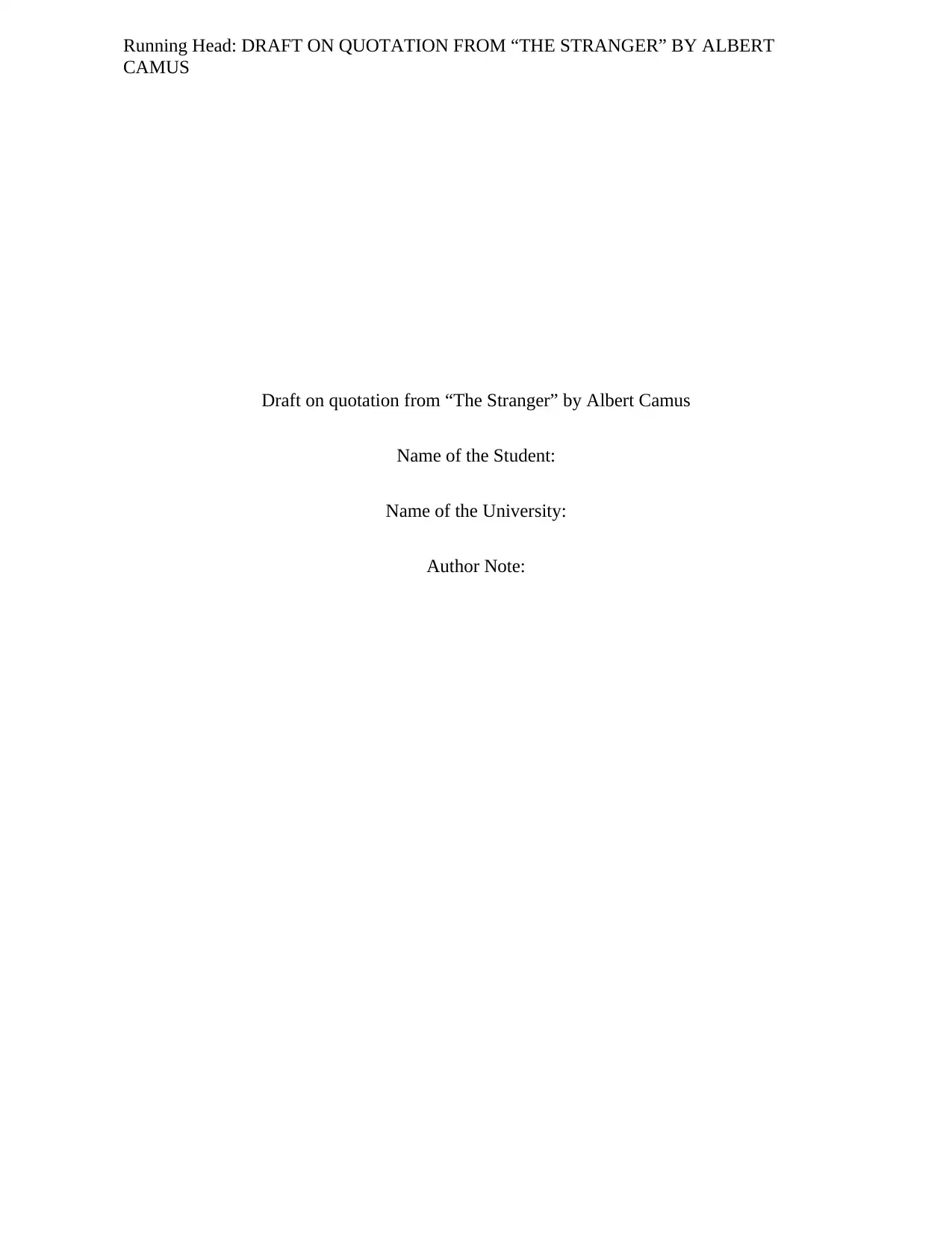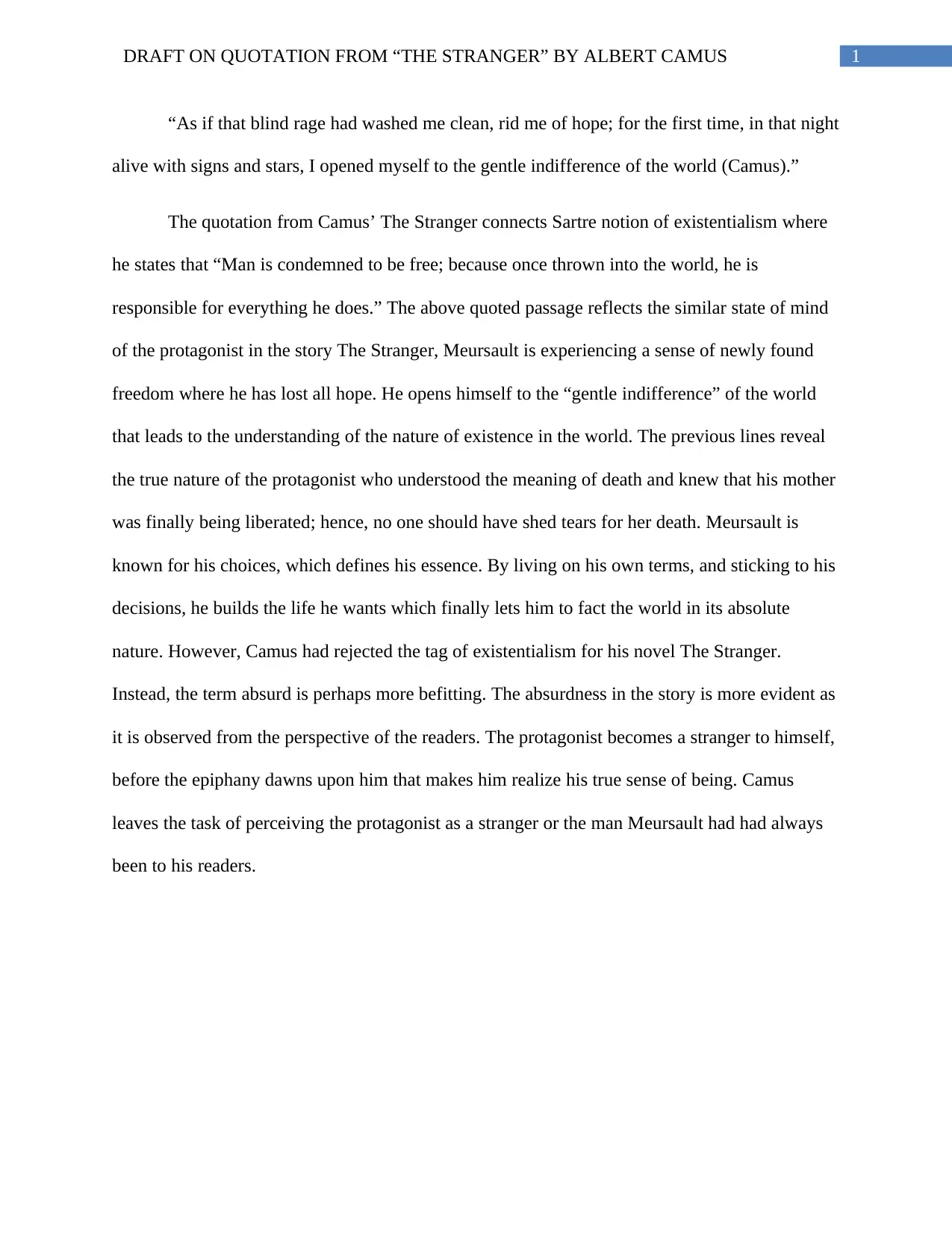The Stranger: An Examination of Camus's Quotation and its Meaning
VerifiedAdded on 2022/08/11
|3
|407
|18
Essay
AI Summary
This essay analyzes a key quotation from Albert Camus's *The Stranger*, exploring its connection to existentialism and the concept of the absurd. The essay examines the protagonist, Meursault's, experience of newfound freedom, and his indifference to the world, highlighting the quote's significance in reflecting his state of mind. The assignment delves into the protagonist's understanding of death and his acceptance of the world's indifference. The essay also touches upon the debate surrounding whether Camus's work aligns with existentialism or absurdism, emphasizing the protagonist's journey of self-discovery and how readers perceive him. The work cites Camus's novel and provides a critical perspective on the themes presented.
1 out of 3










![[object Object]](/_next/static/media/star-bottom.7253800d.svg)